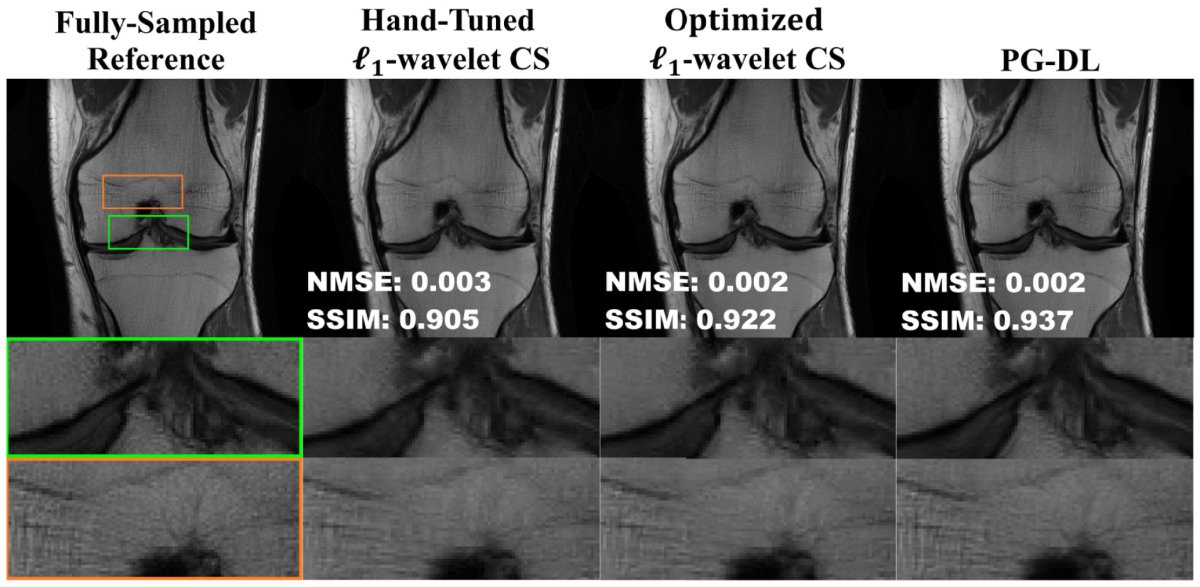Advanced data science techniques could improve the performance of traditional MRI

Researchers from the Department of Electrical and Computer Engineering, and the Center for Magnetic Resonance Research led by Jim and Sara Anderson Associate Professor Mehmet Akçakaya have demonstrated that data acquisition using conventional sensing methods can have outcomes close to those delivered by deep learning methods when they have access to the same advanced data science tools as deep learning reconstructions. Their approach and the results of their study are published in Proceedings of the National Academy of Sciences (PNAS) under the title, “Revisiting 1-wavelet compressed-sensing MRI in the era of deep learning.”
Magnetic Resonance Imaging (MRI) technology has been a significant advancement for disease diagnosis because of its non-invasive nature. However, the data acquisition process can be a cause for patient discomfort: patients have to remain still in the MRI machine for lengthy periods of time. While methods such as compressed sensing (CS) have improved the time patients spend in the machine, deep learning (DL) methods trained on vast databases, including hundreds of thousands of tunable parameters among other tools have significantly accelerated the image acquisition process. In the current study, Akçakaya and his team examine the performance of CS, a conventional method, when it is used in combination with advanced data science tools. They have found that traditional sensing methods offer results that are comparable to those offered by DL methods when equipped with modern tools.
Learn more about the impact of the study and the future lines of research it holds in a write up hosted at the College of Science and Engineering website.
The research was funded by the National Institutes of Health and a National Science Foundation CAREER Award.
Professor Mehmet Akçakaya’s primary research interests are in improving magnetic resonance imaging (MRI) using signal processing and inverse problems techniques. Learn how Akçakaya and his team develop new image processing technologies for medical applications in the IMAGINE Lab.